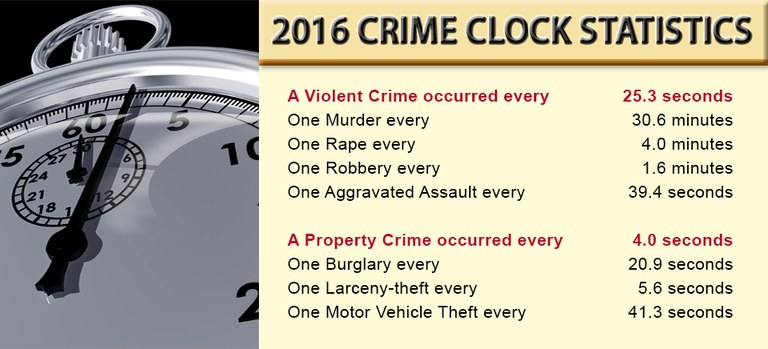The apparent triumph of the values of liberalism stand in sharp contrast with the disintegration of the other value systems that emerged subsequently, especially in the nineteenth and twentieth century, from Fascism to the various forms of Socialism. But after the collapse of the Soviet Union in 1990, liberalism was considered to be the last ideology left standing. But in the past few years extreme climatic, social, economic and political conditions have all converged to put Western civilisation under extreme strain and it has been often exposed to have little or no clue on how to resolve the multitude of problems that stem from the interdependencies of these extreme conditions.
Capitalism or Liberal values are the fruits of the Enlightenment, which took place in Europe. It was forged during the 16th and 17th centuries in opposition to the dogmatism of the Christian Church. By the 19th century liberalism had become the established order and today many of the core values associated with liberalism are institutionalized throughout the Western world. Values such as freedom of speech, liberty, individual autonomy, freedom of ownership and democracy have become accepted at least in principle across the political spectrum. After the collapse of the Soviet Union in 1990, liberalism was considered to be the last ideology left standing. Hence Western liberal democracy has monopolised global governance, the imposition of democratic ideals on global issues is by default. Western liberal democracy is considered the solution to all ills, it is in itself progress and modernity and everything else is dictatorship and outdated.
At the heart of Liberalism is the individual. The basic building block of the Western liberal ideology is the individual. The happiness of the individual is secured when he or she can pursue their self-interest, for Liberalism this is the primary motivation in life. After living under the arbitrary authority of the Church for centuries, men and women were finally free to live as they pleased. Naturally once freedom was attained, what else could act as a motivator except for benefit and self-interest (famously codified as ‘Utilitarian Theory’).
The thinkers who called for freedom argued that human beings should be free to pursue their own happiness without facing any form of coercion or undue influence. Historically, in the context of Europe, widespread coercion usually stemmed from a religious authority. As political freedom meant people being free, particularly from religious and government influence, to maximise their personal benefit, it was only natural for a believer in freedom to seek to establish Secularism as the only form of legislation. Political freedom in Secular societies is therefore the right to legislate to maximise individual freedoms. In this case, the question of the existence of a creator inevitably becomes irrelevant when it comes to politics and legislation. The US Declaration of Independence of 1776 first established freedom (liberty) as its basis: “We hold these Truths to be self-evident, that all Men are created equal, that they are endowed by their Creator with certain unalienable Rights, that among these are Life, Liberty and the Pursuit of Happiness.” Thus, a government exists to secure the rights of the people. Its purpose is to facilitate their attempts to increase personal benefit (utility). In short, justice according to Western liberal values is the protection of the individual freedoms of speech, belief, expression and ownership.
But in the 21st century the western world is seeing a huge increase in crime, promiscuity, depression and a host of other social and economic ills that are just getting worse as the years go by. If we look at the bulk of these problems the legislation or solutions that are passed are catering for problems caused by liberal values themselves. In the past few years extreme climatic, social, economic and political conditions have all converged to put Western civilisation under extreme strain and it has been often exposed to have little or no clue on how to resolve the multitude of problems that stem from the interdependencies of these extreme conditions.
Social Breakdown
The Social decay of western societies is something many constantly speak about and has only gained more attention as matters get worse. Relationships between people and between genders are central to any society and western liberal values tackled this by protecting the right of all individuals to determine their own relationships and the actions they want to engage in. By individuals determining how to fulfil their needs, (not from another source, such as God) this would be the best way to achieve happiness. Since the 1960’s marriage was separated from sex, homosexuality was legalised as well as pornography, all in the name of protecting the rights of individuals to engage in such acts. With much of the western world viewing life through the lens of self-interest the individual freedoms have led to high crime rates, anti-social behaviour and violence, relationship breakdowns, sexual permissiveness and sexually transmitted diseases (STDs).
Society is people and their relationships and liberal values places the individual and their self-interest as the priority. Cooperation, family, charity, voluntary work are severely affected by such a world view. This has led to individuals placing their actions and their happiness above the effect it has on wider society, irrespective of the damage it also causes to others.

Western governments are having to introduce legislation (solutions) to deal with the results of people practicing their individualism. Rape, child abuse, substance abuse, domestic violence and sexual permissiveness have reached such levels that the legislation is struggling to tame the potency of individualism, which is going to further and further extremes. Yet, taken to its extreme, liberal societies will revert to anarchy where might is right.
The individual freedoms, which are the bedrock of western civilisation create perpetual conflicts in society. The dilemma secular legislators face is what is beneficial to one person is not necessarily beneficial to another. People’s interests overlap and as a result there exists a constant renegotiation of space, entitlement and privilege. More often than not, the underlying criterion for an action is self-gratification and fulfilment – ‘what’s in it for me’? A society where an individualistic outlook is common can only decline into a virtual free-for-all, as everyone, including the government, would attempt to take full advantage of life. Freedom leads to people seeking their own benefit and more often than not, those with political and/or financial clout have the upper hand. This produces a host of problems, not least the conflict of peoples’ freedoms. For example:
- Is abortion murder or a women’s right? In this case the conflict of freedom is between the mother and her child.
- Should cannabis be legalised/decriminalised? In this case the conflict of freedom is societal.
- Is education a right or a privilege? Should students be asked to pay fees for University education? In this case the conflict of freedom is national.
- Should one nation invade another nation if it would guarantee oil reserves, a clear strategic advantage and multiple billion-dollar contracts for its industry? Should a dictator be sold arms if it will help boost domestic trade? In these cases the conflict of freedom is international.
- Is it acceptable for countries that aim to produce anti-retroviral drugs to combat HIV/Aids to be threatened with international sanctions if it harms the profits of conglomerates and multinationals? In this case the conflict of freedom is between corporate interests and millions of lives.
- Can there be any excuse for a country to ignore desperate warnings about global warming just because of the potential unpopularity, loss of jobs and economic downturn if significant action was to take place? In this case the conflict of freedom is global.
- Should Muslims be forced to accept caricatures of the Prophet of Islam ﷺ not be offered any sensitivity even if they feel insulted? In this case the conflict is between two different ways of life.
All of this shows there is a huge disparity between freedom in theory and its application in reality. In essence, there is no level playing field between citizens as far as their right to exercise their freedom is concerned. Taking the example of freedom of speech, one man’s freedom to speak encroaches on someone else’s right to free speech. In practice, members of society clash as some members of society find the speech of others provocative, incendiary, insulting, humiliating and offensive and subsequently governments intervene to regulate freedom of speech amongst its citizens through enactment of laws. The laws are generally skewed in the favour of the most powerful faction in society and subsequently this faction is able to protect its freedom to speak at the expense of the rest. Hence, there is a mad rush to influence the legislative process through lobbying by the most powerful interest group(s) to secure legislation to protect their freedom to speak. Subsequently the limits of free speech for them are expanded, and for the rest it is contracted and confined. Muslims globally were expected to accept the insult of their prophet as freedom of speech includes the freedom to insult, however questioning the legitimacy of Israel is restricted and condemned!
Economic Problems
Capitalism dominates economics today, which led to freedom of ownership and the free market to dominate every aspect of economics. Whilst there is more wealth in the world today than any point in history, we also have some of the deepest economic problems ever in world history. Perpetual economic growth came to be designated as the raison d’être for liberal economies. But this has now created history’s greatest ever wealth fault line.
Capitalism has failed in distributing wealth in any equitable manner. In 2006 the World Institute for Development Economics Research of the UN released the culmination of a global study. A number of its findings were staggering. By gathering research from countries all over the world the study concluded that the richest 1% of the world owns 40% of the planet’s wealth and that only 10% of the world’s population owned 85% of the world’s assets.[1] Richard Robbins in his award winning book ‘Global Problems and the Culture of Capitalism’ confirmed this when he said: “The emergence of Capitalism represents a culture that is in many ways is the most successful that has ever been deployed in terms of accommodating large numbers of individuals in relative and absolute comfort and luxury. It has not been as successful, however, in integrating all in equal measure, and its failure here remains one of its major problems.” Subsequent research has shown global wealth inequality is getting worse. Perpetual economic growth i.e. wealth creation has failed to distribute wealth in any equitable manner and created the inequality problem in the world.
“The emergence of Capitalism represents a culture that is in many ways is the most successful that has ever been deployed in terms of accommodating large numbers of individuals in relative and absolute comfort and luxury. It has not been as successful, however, in integrating all in equal measure, and its failure here remains one of its major problems.” Richard Robbins, ‘Global Problems and the Culture of Capitalism
The focus on perpetual economic growth created another problem. Perpetual economic growth was one of the reasons that led to the rapid industrialisation in the 18th century. The emissions from factories and then the rapid increase in the use of coal, then oil and eventually gas for energy led to global emissions to frantically increase. There is broadly an agreement that these fossil emissions i.e. human activity has led to a rise in global temperatures and is causing the widespread climate problems. As Capitalism placed perpetual economic growth as the overwhelming purpose of a liberal economy, cutting emissions, though reducing production is taboo as this would halt economic growth. This is why emission reduction targets are voluntary and each meeting on climate change merely ends with discussions on when more efficient technology would be available that maintains current economic levels with less emissions. The need to perpetually grow, has contributed to global warming, a central tenant of liberal economic thought, solving it is impossible as it would entail contradicting this central value, this is why no solution has been reached.
This situation will persist as capitalism focuses primarily on economic growth, the distribution of wealth, and the affect on the environment is left to the forces of the free market to determine. The trickle down effect was meant to flow from the top to the bottom as the economy grows. But the reality is capitalism has failed in distributing wealth equitably as it focuses on economic growth leaving distribution to the forces of the free market which cannot spread wealth in an equitable manner.
Democracy
Democracy started as an experiment in Athens over two thousand years ago and eventually pervaded every continent and every land. Democracy means different things to different people; Western secular societies do not have a monopoly on claiming democracy as their own. Many communist countries during the Cold War era described themselves as democratic republics; and even Saddam Hussein’s Iraq had presidential elections. Others view democracy as more than just elections – that democracies should be characterised by other values and institutions. That alongside regular elections there must be liberal values, a functioning legislative chamber, a vibrant opposition, a free media, civil society and an independent judiciary. But whatever the minute differences, all those who believe in democracy take the political system that institutionalises legislative sovereignty – in either the people directly or in their elected representatives to be the basis – i.e. the ability to choose and enact legislation is the key characteristic of democracy.
But today democracy is drowning in its own theoretical foundations. Whilst all would agree that their leaders should be elected, the reality of democracy is that regular elections favour those with money and adversely impact tough long-term decision making. The frequency of elections has come to bias politicians against tackling long-term challenges and instead to focus on short-term popularity. The more elections there are the more national democracies have become poisoned with money and short term thinking. This is why Winston Churchill observed in 1947: “No-one pretends that democracy is perfect or all-wise. Indeed, it has been said that democracy is the worst form of Government except all those other forms that have been tried from time to time.”[2]
In all these examples it can be seen that solving human problems is equated to protecting the individual freedoms. As a result, the nature of the secular, liberal ideology is to adapt and include new problems and legislate to accept them. Hence, homosexuality, prostitution, drug abuse was all solved by accepting the legitimacy of these actions, not by addressing the root cause of the problems. In another example liberal democracies never resolved nationalism, but accepted its existence and institutionalised it, under freedom of belief, despite its devastating results. If we look at the bulk of these problems, we will find that the legislation is catering for problems caused by the freedoms.
The individual freedoms have caused serious social problems, as was highlighted by Alex Jones about the US: “The United States is rapidly becoming a cesspool of liars, thieves, murderers, perverts and psychopaths…..The reason why I write about this stuff is because there is never going to be any hope of a turnaround in this country until we take a good, long look in the mirror and admit how far we have fallen. Yes, a lot of these things are almost too horrible to talk about, but as a nation we must understand how bad things have become. There is evidence of extreme social decay all around us, and it is steadily eating away at the very foundations of our Republic.”[3]
The ruling spheres will never allow the basis of the system to be questioned, for their very existence as ruling elites is at stake. As a result, the elites have in almost all cases adapted and used public opinion to legitimise an activity which they are unable to solve i.e. legislate to accept the problem, not solve it. The provision of free and clean needles to drugs abusers to prevent the spread of AIDS is an example of this.
Whilst there are numerous evidences for this already, questioning and linking the problems to the freedoms is not taking place at present. But as the problems multiply, as we go forward and individualism is taken further to the extreme, the contradictions should become clear. Whether this happens in the 21st century remains to be seen, but an ideological challenge from a movement or state would precipitate this as the values causing the problems can be clearly seen.
[1] James B. Davies, Susanna Sandstrom, Anthony Shorrocks, and Edward N. Wolff, The World Distribution of Household Wealth, 5 December 2006 www.iariw.org/papers/2006/davies.pdf
[2] See, http://hansard.millbanksystems.com/commons/1947/nov/11/parliament-bill
[3] 12 Signs Of Extreme Social Decay In America That Are Almost Too Horrible To Talk About, infowars.com, January 2014, http://www.infowars.com/12-signs-of-extreme-social-decay-in-america-that-are-almost-too-horrible-to-talk-about/




